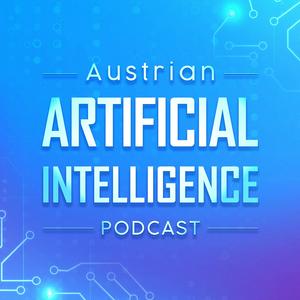KI-Agentenplattformen sind in aller Munde. Und obwohl der GenAI-Hype langsam abklingt und viele vor einer KI-Blase zittern, hoffen immer noch andere auf den großen Durchbruch durch sogenannte Agentenplattformen – Systeme, die versprechen, ganze Unternehmensbereiche zu automatisieren.
Doch wie so oft sind viele dieser Versprechungen leer Luft, und bei der Vielzahl an Plattformen und Frameworks, die wie Pilze aus dem Boden schießen, ist es kein Wunder, dass Unternehmen Schwierigkeiten haben, die richtigen Entscheidungen zu treffen und KI sinnvoll einzusetzen.
Ich glaube deshalb, dass die meisten Unternehmen noch eine ganze Weile ohne wirklich funktionierende KI-Agentenlösungen auskommen müssen.
Umso spannender ist das heutige Gespräch mit meinem Gast **Marko Goels**, Geschäftsführer von **Digital Sunray**.
Marko und sein Team haben bereits 2023 eine eigene KI-Agentenplattform entwickelt: **SunrAI**. Eine Plattform, die sich bewusst von klassischen RAG-Workflows absetzt und drei entscheidende Bausteine kombiniert:
1. **Ein Multi-Agenten-System**, in dem spezialisierte Agenten flexibel zu variablen Workflows kombiniert werden.
2. **Einen Smart Data Lake**, der Rohdaten analysiert, anreichert und verdichtet, um bei Anfragen nur die relevantesten Informationen in den LLM-Kontext zu laden – für präzisere Antworten und weniger Halluzinationen.
3. **Einen Knowledge-Management-Layer**, der über sogenannte Routinen das implizite Wissen von Unternehmen abbildet und durch Experten-Feedback stetig erweitert. Wodurch Unternehmen ihre Agenten Schritt für Schritt in ihre Arbeitsweisen und spezifischen Anforderungen einschulen können.
Wir sprechen im Interview sowohl über die **unternehmerische Perspektive** – wie sich eine KI-Plattform in bestehende Strukturen integrieren lässt, ohne Mitarbeiter zu verunsichern – als auch über **technische Aspekte**, etwa warum und vor allem wie saubere Datenaufbereitung umgesetzt werden muss, um komplexe Anwendungen überhaupt zu ermöglichen.
Besonders interessant ist dieses Gespräch für alle, die verstehen wollen, **was eine echte Agentenplattform von simplen Prozessautomatisierungstools wie Zapier oder n8n unterscheidet** – und wie KI schon heute sinnvoll im Unternehmensalltag eingesetzt werden kann.
Viel Spaß beim Zuhören!


